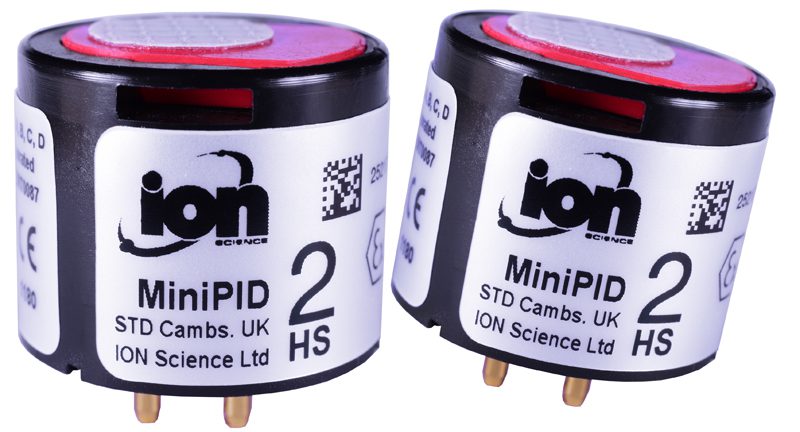
Highly sensitive version of sensor capable of monitoring trace levels of VOCs over a long period of time making it ideal for air quality applications.
In response to the growing demand for reliable and accurate detection of a wide range of volatile organic compounds (VOCs) at extremely low levels, Ion Science – a manufacturer of gas detection instrumentation – has launched a high sensitivity version of its MiniPID 2 sensor.
Claimed as “ground-breaking” by the firm, Ion Science’s MiniPID 2 HS is 15 times more sensitive than the company’s existing, 2 parts per billion (ppb) sensor, the MiniPID. It is capable of detecting trace levels of VOCs over a long period of time making it ideal for indoor air quality monitoring applications, says Ion Science.
It is also said to be well suited to clean rooms, fence line monitoring, industrial hygiene, site soil and air sampling, fugitive emissions, volatile spills, law enforcement and emergency response.
Delivering a dependable response to thousands of VOCs across many diverse applications, the MiniPID 2 HS is a simple plug and play sensor providing a wide detection range of 0.5 ppb up to 4 parts per million (ppm).
Ion Science’s MiniPID 2 HS also features a re-designed, pneumatically sealed electrode stack for high sensitivity and a wide detection range. An innovative self-diagnostic feature indicates whether the electrode stack is contaminated or if the sensor is not operating correctly.
The MiniPID 2 HS incorporates Ion Science’s recently launched long-life eV lamp that offers 10,000 hours continuous operation. Together with exceptional brightness and improved stability, this facilitates reliable detection of less volatile and less readily sensed compounds, over an extended period of time.
Duncan Johns, Ion Science’s Managing Director says: “Exposure to hazardous substances at work is a major contributor to ill health, and the loss to companies through absence and litigation is enormous. However, once a problem has been identified, indoor air quality can be significantly improved by installing proper air ventilation and filtration systems.
He continues: “The introduction of the new MiniPID 2 HS provides an effective opportunity to introduce extremely low level VOC detection. It also gives stability, control and reliability advantages that are unavailable in other PID designs.”
Like Ion Science’s other sensors, MiniPID 2 HS incorporates patented Fence Electrode Technology which is seemingly proven to resist humidity and contamination for optimum detection of VOCs in challenging environments.
Amongst the benefits offered by Ion Science’s MiniPID 2 HS sensor are its low running current, robust lamp illumination, reliable operation at extreme temperatures and ease of serviceability.
The MiniPID 2 HS is designed for both diffusive and in-line pumped sampling, delivering “an exceptional response time and clear down”. It has intrinsically safe certification and is ATEX, IECEx, II 1G Ex ia IIC T4 Ga accredited.







